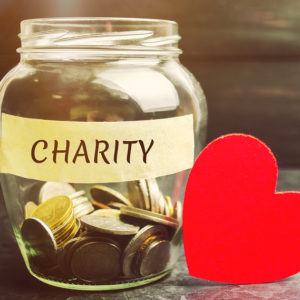Are we a generous people? It sounds silly, but I’ve asked many similar questions over the last few years. Why is our attention span the size of a goldfish? Why have we become meaner, which is often exhibited in very public places like airplanes? Perhaps the pressures of modern-day living and the abnormal behaviors brought on by COVID have taken their toll.
In 2023, before I hug someone, I now ask, “Are you accepting hugs?” If I cough, I quickly say either, “It’s a cold,” or “I’ve tested.” We live in a culture that has us noting whether people are blue, red or purple and judging accordingly. We know nothing good ever happens when we talk about Trump, Biden, Congress, the media, and — dare we say it — Twitter.
So, what’s the good news? We need it these days. It’s why the category of uplifting books is growing in popularity. The good news is that we still value giving, even when we fear inflation, stagnation and job security. Gallup reports that 81 percent of respondents donated money to charitable organizations in 2021, an 8 percent increase from the year prior. Lending Tree adds that Americans laid off during the pandemic were the most likely to donate.
Best of all, we’ve found different ways to reach deep into our pockets. It’s not just about “how” — using digital wallets and contactless payment to make our donations. It’s about “what.” It’s about continuing to pay for services we aren’t using — the gym, the babysitter, the cleaning crew — because we want to help keep them as whole as possible.
We also want to have a say in how our donations are spent. This attitude is particularly noteworthy among “Next-Gen giving,” the generation of millennials and Gen-Z. Feeling a responsibility brought on by their moral compass and a heightened sensitivity raised by social media, this group is more aware of the everyday actions of whomever they support, and they expect accountability and transparency. They seek to be involved beyond their dollars.
The Next-Gen group is also more likely to use their social connections for strong advocacy work. Vehicles like GoFundMe, the largest crowdfunding donation platform in the world, combined with social media, have proven to be helpful tools in getting the message and dollars out.
GoFundMe dubbed 2021 “The Year of Gratitude” because, despite trying times, donations held strong. It should know, having been in the donation business since 2010 and raising $15 billion. One favorite statistic: one donation is made every second to people across the globe. The best long-term effect of GoFundMe may be its having instituted the spirit of generosity as a behavioral norm.
Still, the dollars tell only a part of the story. There are so many ways to be generous. Who doesn’t love the story of the 6-year-old boy who donated his new scooter by leaving it on a sidewalk with a note, “Free to a little boy/girl who is not lucky enough to have one.” The boy got back a handwritten note, “Thank you so much Max. I love my new scooter.”
And lest we forget, generosity also includes volunteering our time and expertise to people in need. Even here, the news is also positive. It is estimated that 30 percent of people in the U.S. volunteer, contributing 52 hours annually. Given that many Americans find themselves in a time deficit, this is indeed generous. We are a nation that is underslept, overloaded and carrying long to-do lists, which we bring over into our next day.
Thinking about the many faces of generosity inspired me to create a story about a teen (Alfred) and his coach who explore friendships, and generosity is a crucial ingredient. Alfred comes up with some personal ways to be generous — baking his favorite Soho Glob cookies for his friends, making his mom breakfast and helping classmates solve math problems — none of which require money.
As we proceed through 2023, generosity gives us a reason to feel better about ourselves. When combined with our creativity and time, we can be difference-makers with friends and within our communities.
Winston Churchill said, “We make a living by what we get, but we make a life but what we give.”
We believe that even still.


